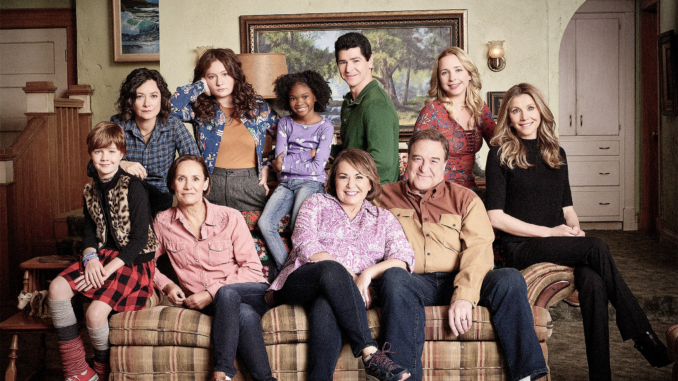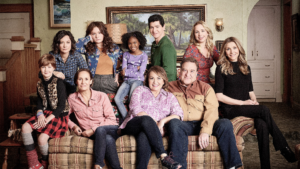
In 2018, Roseanne made a much-anticipated return to television. The revival, which brought back the original cast and continued the Conner family’s story, generated a massive amount of buzz. Fans were eager to revisit the show that had captured their hearts in the 90s. However, the revival came with its fair share of controversy, and ultimately, the show’s fate was sealed in an unexpected way.

The revival started strong, with Roseanne Conner returning to her role as the outspoken matriarch of the family. The series opened with a focus on the political divide in America, which mirrored real-life tensions between conservative and liberal viewpoints. This was a timely topic, as the country was embroiled in political discourse, and Roseanne didn’t shy away from addressing these issues head-on. The Conner family was portrayed as being divided along political lines, with Roseanne being a vocal Trump supporter, while her sister Jackie held more liberal views. This dynamic added a layer of complexity to the show, as it explored how families navigate differing political ideologies.
The revival also brought back the show’s signature humor, with Roseanne’s no-holds-barred approach to life providing plenty of laughs. The chemistry between the original cast members was as strong as ever, and the show felt like a natural continuation of the Conner family saga. Fans appreciated the nostalgia of seeing the familiar faces again, and the revival was initially successful in terms of viewership.
However, the revival was marred by controversy. Roseanne Barr, the star of the show, became embroiled in a public scandal when she posted a racially insensitive tweet about former Obama aide Valerie Jarrett. The backlash was swift, and ABC made the decision to cancel the show after just one season. The cancellation led to the creation of The Conners, a spin-off that continued the story without Barr’s character.
Despite the controversies, the Roseanne revival and its aftermath highlighted the cultural relevance of the show. Even without Barr, the Conners continued to represent working-class America and provided commentary on the political and social issues of the time.
